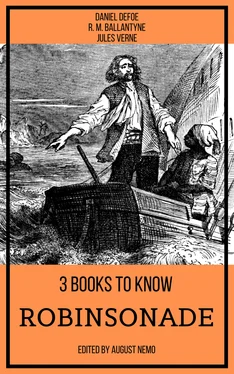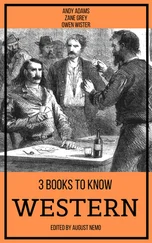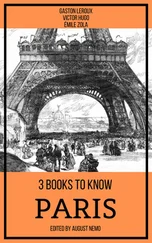We were much diverted with this anecdote, which the teacher related in English so good that we certainly could not have supposed him a native but for the colour of his face and the foreign accent in his tone. Next day we walked out with this interesting man, and were much entertained and instructed by his conversation as we rambled through the cool, shady groves of bananas, citrons, limes, and other trees, or sauntered among the cottages of the natives, and watched them while they laboured diligently in the taro-beds or manufactured the tapa, or native cloth. To some of these Jack put questions, through the medium of the missionary; and the replies were such as to surprise us at the extent of their knowledge. Indeed, Peterkin very truly remarked that “they seemed to know a considerable deal more than Jack himself!”
Among other pieces of interesting information that we obtained was the following, in regard to coral formations:
“The islands of the Pacific,” said our friend, “are of three different kinds or classes. Those of the first class are volcanic, mountainous, and wild — some shooting their jagged peaks into the clouds at an elevation of ten and fifteen thousand feet. Those of the second class are of crystallised limestone, and vary in height from one hundred to five hundred feet. The hills on these are not so wild or broken as those of the first class, but are richly clothed with vegetation, and very beautiful. I have no doubt that the Coral Island on which you were wrecked was one of this class. They are supposed to have been upheaved from the bottom of the sea by volcanic agency; but they are not themselves volcanic in their nature, neither are they of coral formation. Those of the third class are the low coralline islands, usually having lagoons of water in their midst. They are very numerous.
“As to the manner in which coral islands and reefs are formed, there are various opinions on this point. I will give you what seems to me the most probable theory — a theory, I may add, which is held by some of the good and scientific missionaries. It is well known that there is much lime in salt water; it is also known that coral is composed of lime. It is supposed that the polypes, or coral insects, have the power of attracting this lime to their bodies, and with this material they build their little cells or habitations. They choose the summit of a volcano, or the top of a submarine mountain, as a foundation on which to build, for it is found that they never work at any great depth below the surface. On this they work. The polypes on the mountain-top, of course, reach the surface first; then those at the outer edges reach the top sooner than the others between them and the centre, thus forming the coral reef surrounding the lagoon of water and the central island. After that, the insects within the lagoon cease working. When the surface of the water is reached, these myriads of wonderful creatures die. Then birds visit the spot, and seeds are thus conveyed thither, which take root and spring up and flourish. Thus are commenced those coralline islets of which you have seen so many in these seas. The reefs round the large islands are formed in a similar manner. When we consider,” added the missionary, “the smallness of the architects used by our heavenly Father in order to form those lovely and innumerable islands, we are filled with much of that feeling which induced the ancient king to exclaim, ‘How manifold, O Lord, are Thy works! in wisdom hast Thou made them all.’”
We all heartily agreed with the missionary in this sentiment, and felt not a little gratified to find that the opinions which Jack and I had been led to form, from personal observation on our Coral Island, were thus to a great extent corroborated.
The missionary also gave us an account of the manner in which Christianity had been introduced among them. He said: “When missionaries were first sent here, three years ago, a small vessel brought them; and the chief, who is now dead, promised to treat well the two native teachers who were left with their wives on the island. But scarcely had the boat which landed them returned to the ship than the natives began to maltreat their guests, taking away all they possessed, and offering them further violence, so that when the boat was sent in haste to fetch them away, the clothes of both men and women were torn nearly off their backs.
“Two years after this the vessel visited them again, and I, being in her, volunteered to land alone, without any goods whatever, begging that my wife might be brought to me the following year — that is, this year; and, as you see, she is with me. But the surf was so high that the boat could not land me; so with nothing on but my trousers and shirt, and with a few catechisms and a Bible, besides some portions of the Scripture translated into the Mango tongue, I sprang into the sea, and swam ashore on the crest of a breaker. I was instantly dragged up the beach by the natives; who, on finding I had nothing worth having upon me, let me alone. I then made signs to my friends in the ship to leave me, which they did. At first the natives listened to me in silence, but laughed at what I said while I preached the Gospel of our blessed Saviour Jesus Christ to them. Afterwards they treated me ill, sometimes; but I persevered, and continued to dwell among them, and dispute, and exhort them to give up their sinful ways of life, burn their idols, and come to Jesus.
“About a month after I landed, I heard that the chief was dead. He was the father of the present chief, who is now a most consistent member of the Church. It is a custom here that when a chief dies his wives are strangled and buried with him. Knowing this, I hastened to his house to endeavour to prevent such cruelty if possible. When I arrived, I found two of the wives had already been killed, while another was in the act of being strangled. I pleaded hard for her, but it was too late; she was already dead. I then entreated the son to spare the fourth wife, and after much hesitation, my prayer was granted; but in half-an-hour afterwards this poor woman repented of being unfaithful, as she termed it, to her husband, and insisted on being strangled, which was accordingly done.
“All this time the chief’s son was walking up and down before his father’s house with a brow black as thunder. When he entered I went in with him, and found, to my surprise, that his father was not dead! The old man was sitting on a mat in a corner, with an expression of placid resignation on his face.
“‘Why,’ said I, ‘have you strangled your father’s wives before he is dead?’
“To this the son replied, ‘He is dead. That is no longer my father. He is as good as dead now. He is to be buried alive.’
“I now remembered having heard that it is a custom among the Feejee Islanders that when the reigning chief grows old and infirm, the heir to the chieftainship has a right to depose his father, in which case he is considered as dead, and is buried alive. The young chief was now about to follow this custom, and despite my earnest entreaties and pleadings, the old chief was buried that day before my eyes in the same grave with his four strangled wives! Oh, my heart groaned when I saw this! and I prayed to God to open the hearts of these poor creatures, as He had already opened mine, and pour into them the light and the love of the Gospel of Jesus. My prayer was answered very soon. A week afterwards the son, who was now chief of the tribe, came to me, bearing his god on his shoulders, and groaning beneath its weight. Flinging it down at my feet, he desired me to burn it!
“You may conceive how overjoyed I was at this. I sprang up and embraced him, while I shed tears of joy. Then we made a fire and burned the god to ashes, amid an immense concourse of the people, who seemed terrified at what was being done, and shrank back when we burned the god, expecting some signal vengeance to be taken upon us; but seeing that nothing happened, they changed their minds, and thought that our God must be the true one after all. From that time the mission prospered steadily; and now, while there is not a single man in the tribe who has not burned his household gods and become a convert to Christianity, there are not a few, I hope, who are true followers of the Lamb, having been plucked as brands from the burning by Him who can save unto the uttermost. I will not tell you more of our progress at this time; but you see,” he said, waving his hand around him, “the village, and the church did not exist a year ago!”
Читать дальше












